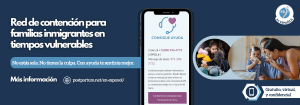Samantha’s Story
At PSI, we understand that storytelling has the power to save lives, and we are honored to provide a space for survivors to share their stories. This article is part of a subsection of the PSI blog dedicated to survivor stories. Please note that this story has not been edited, and caution is advised as distressing themes related to perinatal mental health may be present. If there are specific trigger warnings for an article, they will be listed below. Links to resources can be found at the bottom of this page.
Trigger warning: postpartum psychosis, intrusive thoughts
My Journey from Fear to Recovery
When I became pregnant with my second child, I had no idea that I was about to face one of the most challenging periods of my life. Having experienced postpartum depression and anxiety after the birth of my first child, I knew there was a possibility of those feelings returning. I even told my OB early on in the pregnancy that I had a history of postpartum depression and that it might reoccur. What I didn’t expect, however, was to encounter something far more severe: puerperal psychosis, accompanied by postpartum bipolar disorder. The overwhelming fear, confusion, and loss of control I experienced during that time still linger in my memory.
My experience with psychosis was terrifying and all-consuming. After the birth of my first child, postpartum depression hit me almost immediately. I remember being wheeled into the recovery room, and it was there that I felt an overwhelming crash—a sudden, crushing sense of depression. When I returned home, irrational and obsessive thoughts about my baby’s safety began to consume me. I became fixated on the idea that an intruder might break into our home and harm my child. These thoughts were irrational, but they felt intensely real. They took over my mind and affected my ability to function, leaving me emotionally detached and unable to think clearly.
By the time I became pregnant with my second child, my psychotic symptoms appeared three months before my due date. I was swept into a whirlwind of intense emotions, erratic behaviour, and constant agitation. My behaviour became increasingly undesirable, and I no longer felt like myself. At times, I would act impulsively or say things that didn’t make sense, feeling a growing disconnect between myself and reality. I was eventually hospitalised a month before my baby was born, and placed in a maternity ward. Being surrounded by joyful, expectant mothers only deepened my sense of isolation and turmoil. All I wanted was to be left alone, drowning in the chaos of my mind.
Postpartum bipolar disorder further complicated my experience. My moods would swing dramatically between deep, crushing depression and frantic, agitated mania. The depressive episodes left me feeling hopeless and empty, while the manic phases brought a torrent of racing thoughts and impulsive actions that I couldn’t control. It was a relentless cycle that left me emotionally and mentally exhausted.
Thankfully, my husband recognised that I needed urgent help. After delivering my baby, I was hospitalised in the psychiatric unit of the hospital, marking the first of many in-patient stays over the next six years. With the support of a compassionate psychiatrist, I began a regimen of antidepressants, mood stabilisers, and antipsychotic medication to help manage my symptoms. Finding the right combination took time, patience, and resilience, but eventually, the fog started to lift, and I began to feel more grounded.
Therapy played a critical role in my recovery. Talking through my fears and processing the trauma of my psychotic episode helped me to understand and confront what had happened. Therapy also gave me the tools I needed to cope with the emotional rollercoaster that postpartum bipolar disorder had thrown me on. Slowly but surely, I started to reconnect with my baby and, just as importantly, with myself.
Looking back now, I can see that seeking medical intervention was a pivotal moment in my recovery. Puerperal psychosis and postpartum bipolar disorder are very real, very serious conditions, but they are treatable. The sooner you reach out, the sooner you can start your journey to recovery. You are not alone in this, and with the right support, healing is possible—for you and for your family.
Stigma in the Workplace
Before my first child was born, I had always taken pride in my work and my ability to balance a successful career. However, after experiencing severe postpartum depression, puerperal psychosis, and postpartum bipolar disorder, my professional life was turned upside down. Fortunately, I had made the decision to take time off work after the birth of my first baby. This time away from work became invaluable, as I wouldn’t have been able to hold down a job during those intense months following the delivery. My mental health was fragile, and my focus had to be on recovery.
When I became pregnant with my second child, I returned to work as a teacher. This is when my mental deterioration started to accelerate. My psychosis began three months before my due date, leaving me emotionally unstable, erratic, and unable to manage the everyday pressures of teaching. My behaviour became increasingly ill-considered, and I was no longer myself. I was eventually hospitalised a month before my baby was born, which gave me time to step back from work and focus on getting better. However, my professional struggles didn’t end there.
When I returned to teaching after my recovery, I was met with an unexpected and harsh reality. Unbeknownst to me, my employer had discovered through my son’s nursery that I had been diagnosed with bipolar disorder, something I had not disclosed to the sister primary school where I was teaching. What followed was a series of uncomfortable meetings in which I was often called into the office and criticised for my teaching methods. My behaviour and performance were scrutinised, and I was unfairly labeled. Despite feeling stable in my mood and confident in my ability to teach, I was constantly treated with stigma and doubt. It was a hostile environment where I felt unwelcome, misunderstood, and unfairly judged based on my diagnosis rather than my actual work.
After enduring this for some time, I decided to leave teaching and return to a corporate role—the type of position I had worked in before my first pregnancy. Unfortunately, the transition back to the corporate world was far from smooth. I quickly realised that my work performance was not what it once was. My memory, which had always been sharp, was now impaired. I found myself making mistakes I wouldn’t have made before having children, and this affected both my confidence and my career progression.
These experiences of stigma, workplace challenges, and the harsh realities of returning to work after perinatal mental health struggles left a deep impression on me. The combination of professional difficulties and personal recovery forced me to reevaluate how I navigated my career. It wasn’t just the battle with my mental health that was difficult, but also the lack of understanding and support from the workplace.
Looking back, I understand the importance of transparency and advocating for myself in the workplace, but I also realise how critical it is for employers to offer support and not discrimination to those with mental health challenges. My journey has made me passionate about raising awareness around perinatal mental health in professional environments and the importance of fostering compassionate workplaces for parents returning after mental health issues.
A Piece of Advice for Parents
If I could offer one piece of advice to another parent needing help, it would be this: don’t be afraid to ask for help, and don’t wait until things feel overwhelming to reach out. Whether you’re struggling with anxiety, depression, or any other mental health challenge, seeking support early can make a world of difference. It’s easy to feel like you need to handle everything on your own, but the truth is that reaching out for help is one of the strongest and most loving things you can do for yourself and your family. Whether it’s from a healthcare professional, a trusted friend, or a support group, getting the right help can be the key to recovery. You are not alone and there’s no shame in needing support—there is a path to healing.
Get Help
Learn More about Perinatal Mental Health Disorders
Free Online Peer Support Groups, including Perinatal Mood Support









